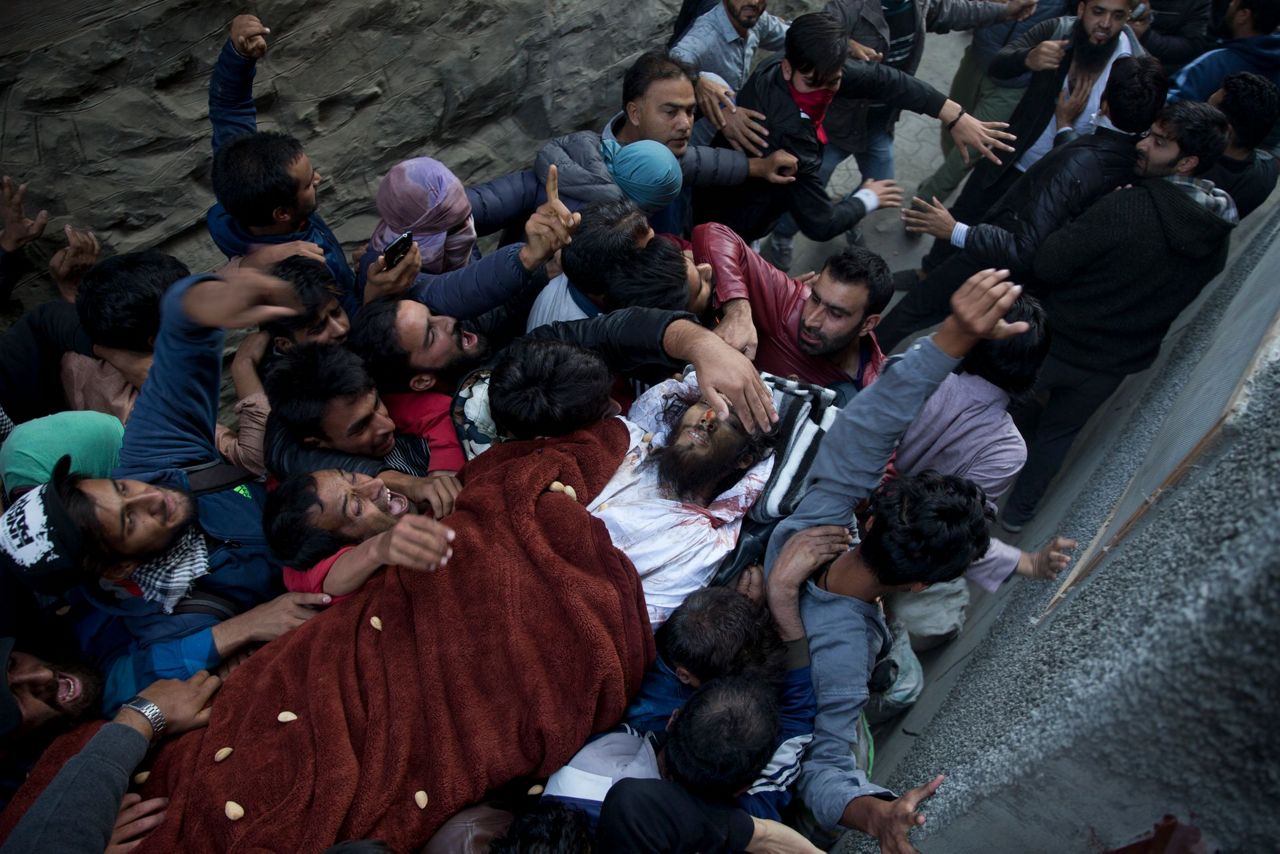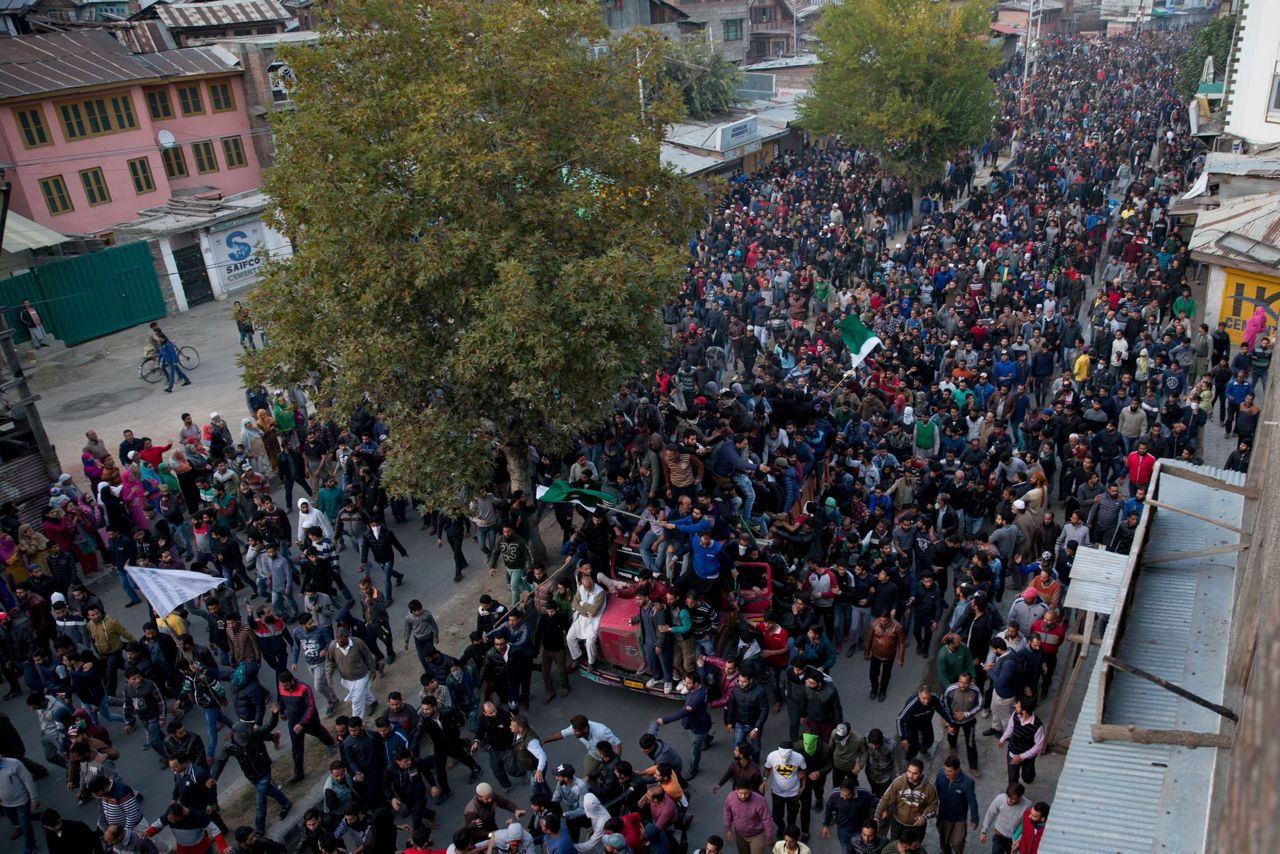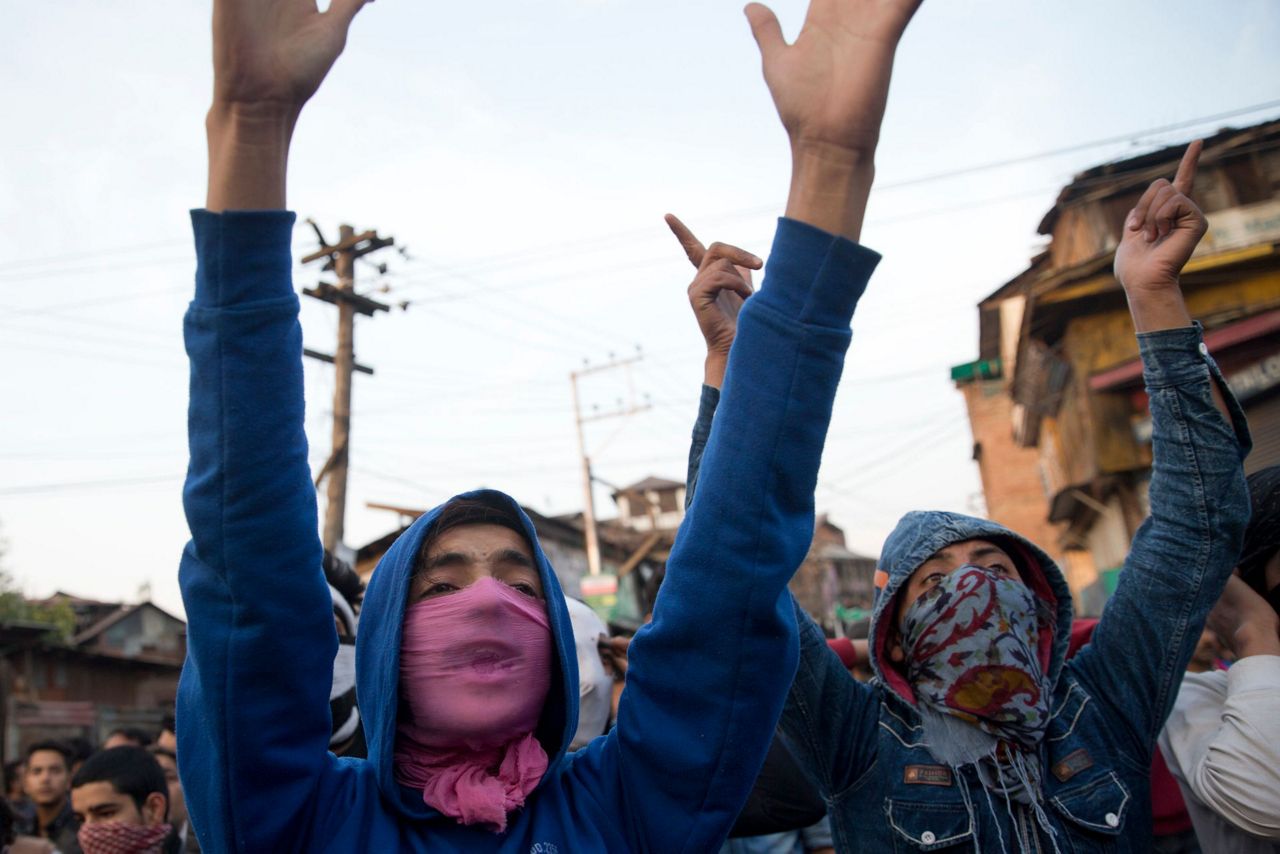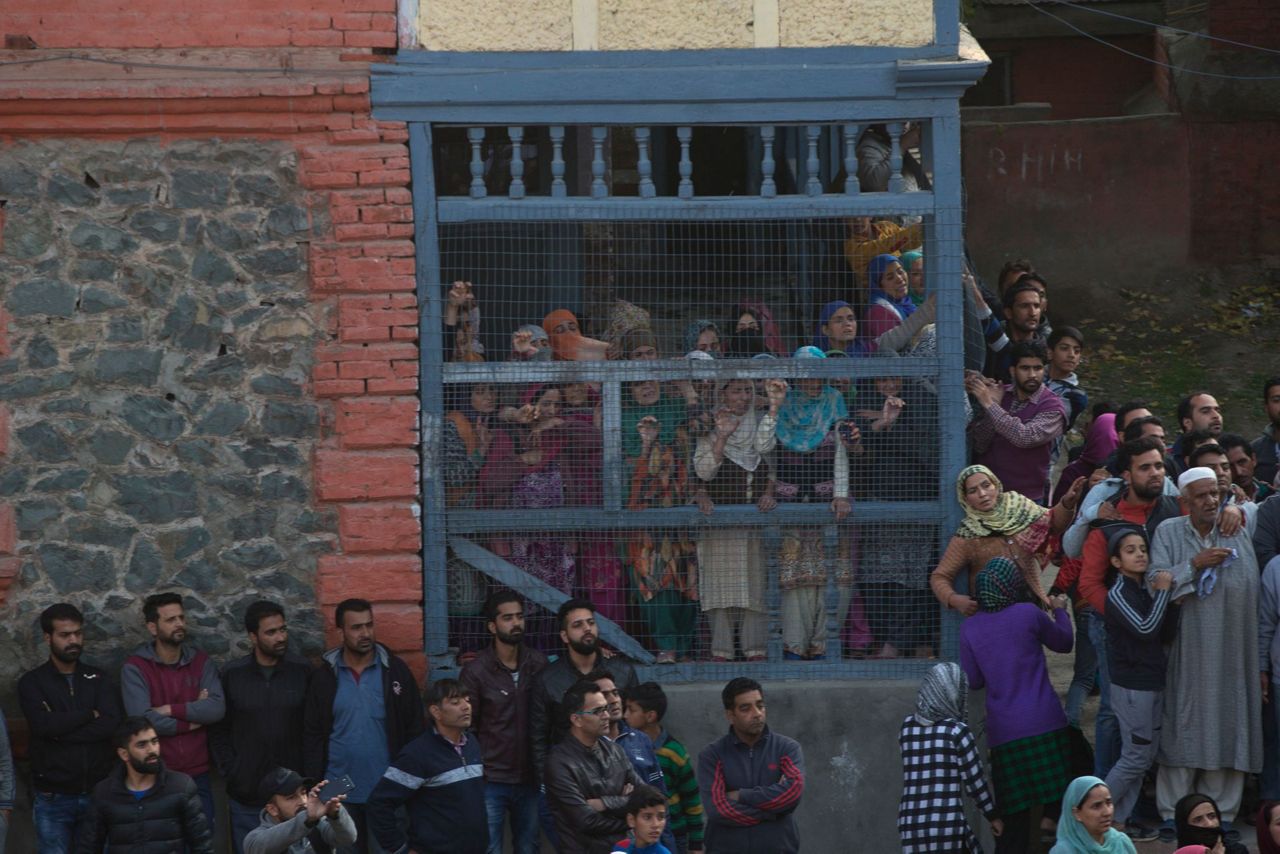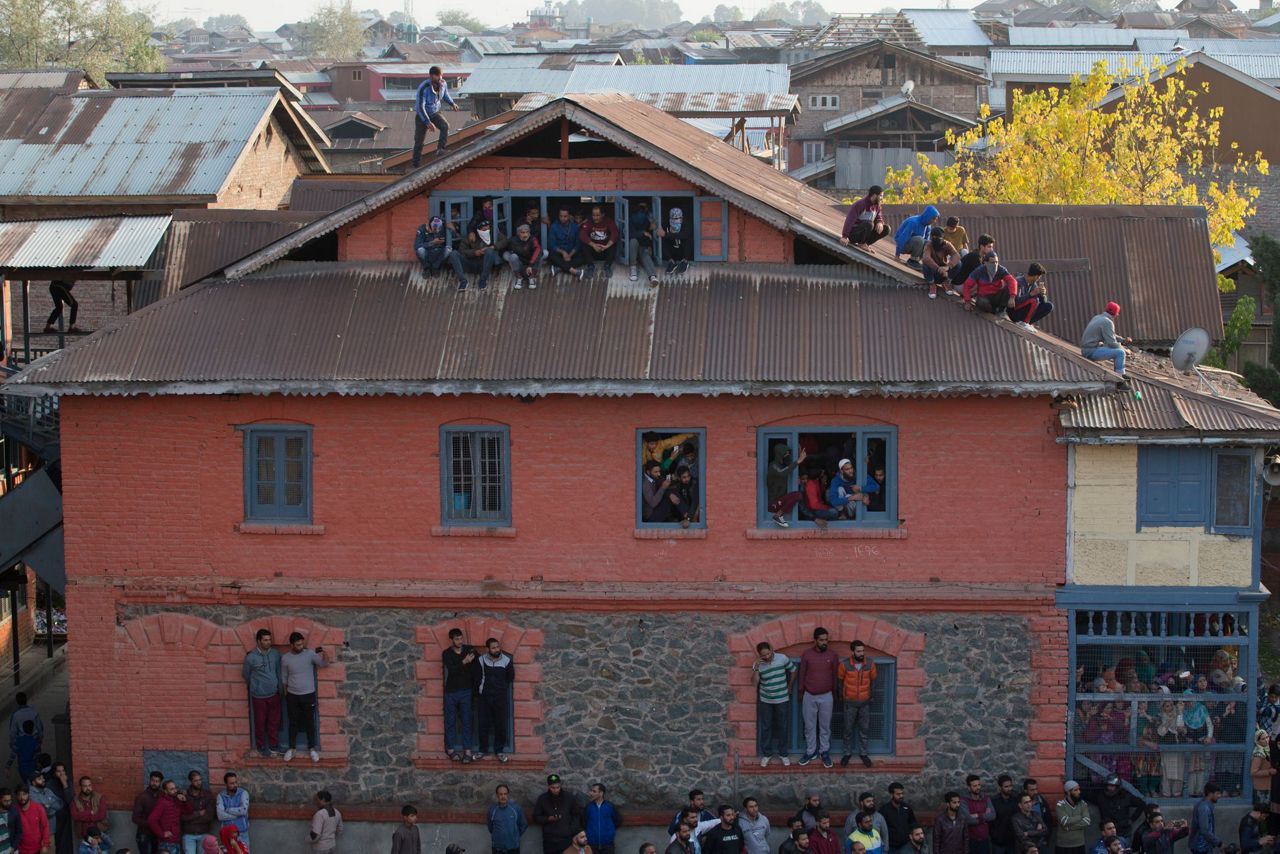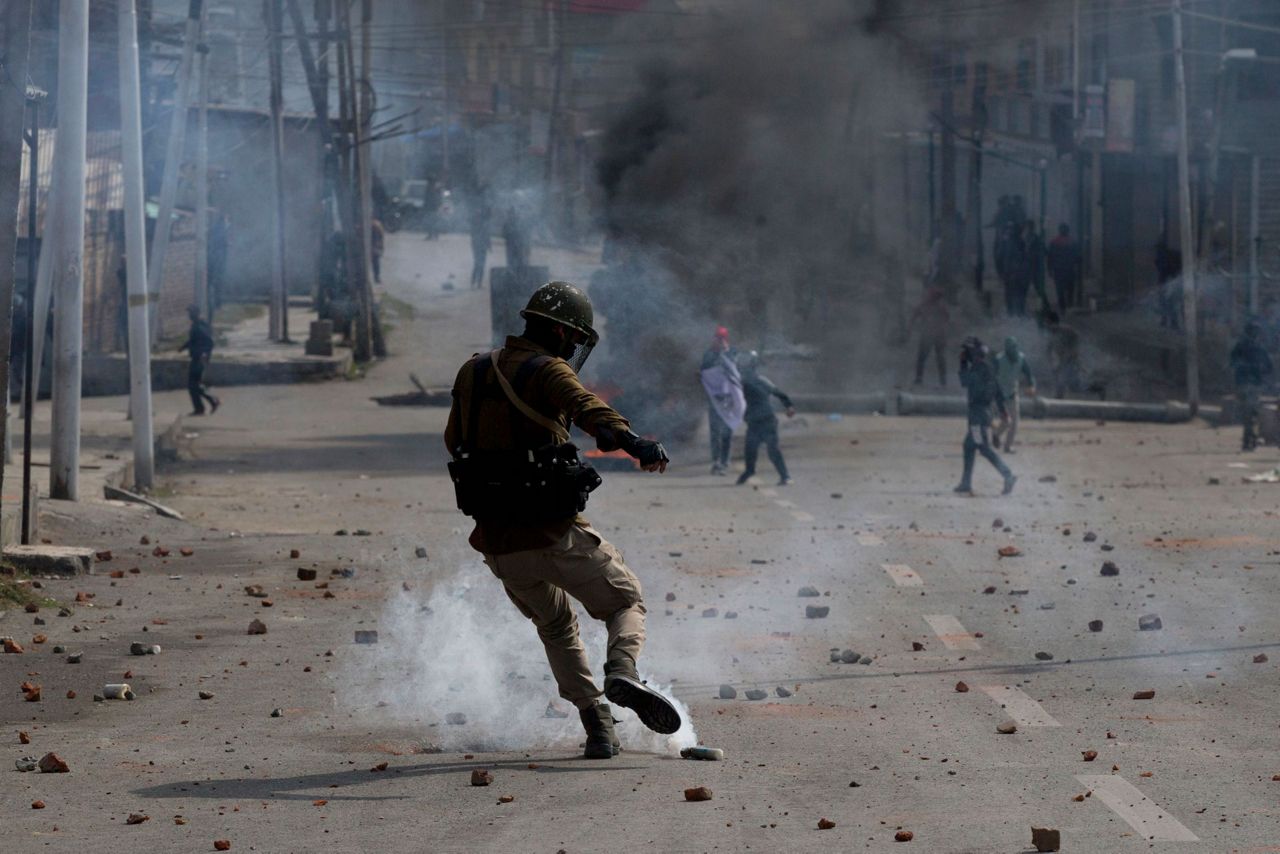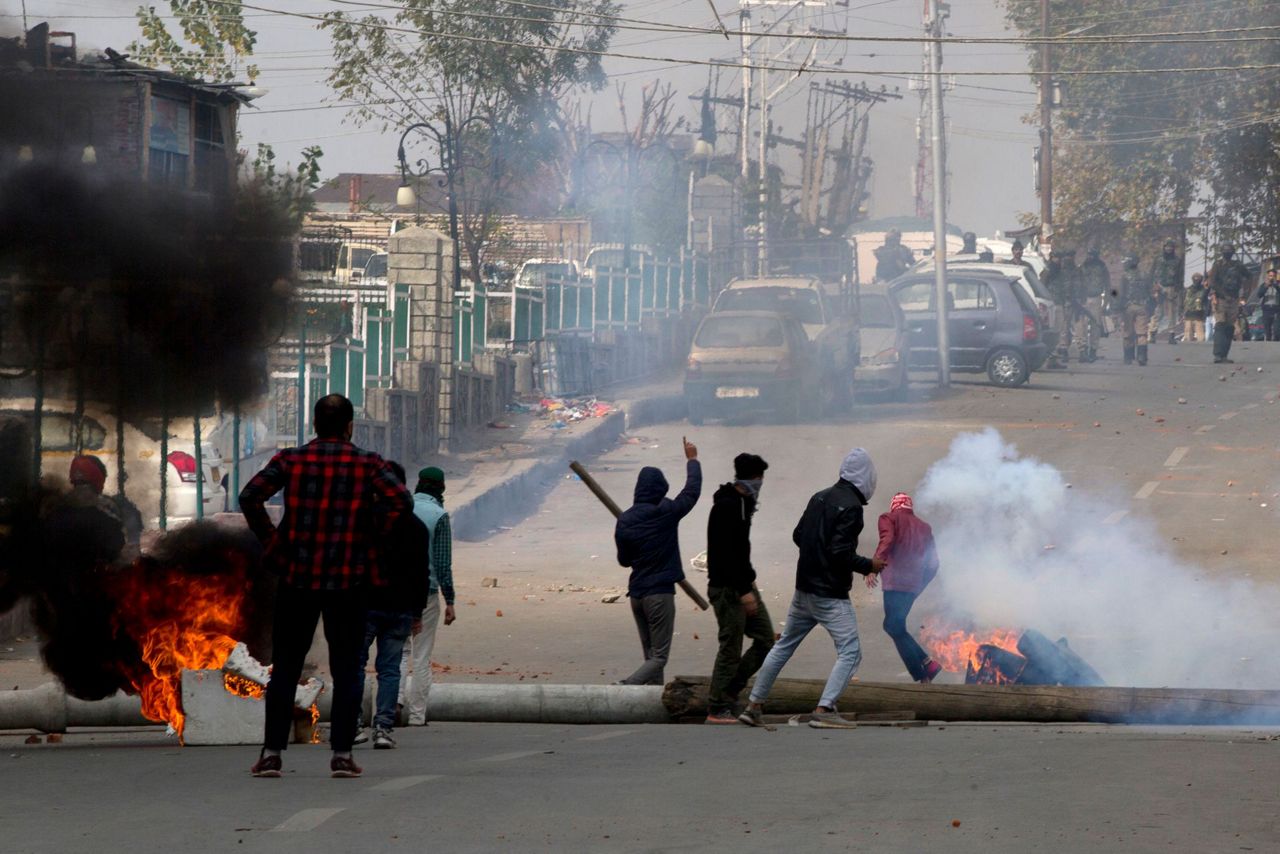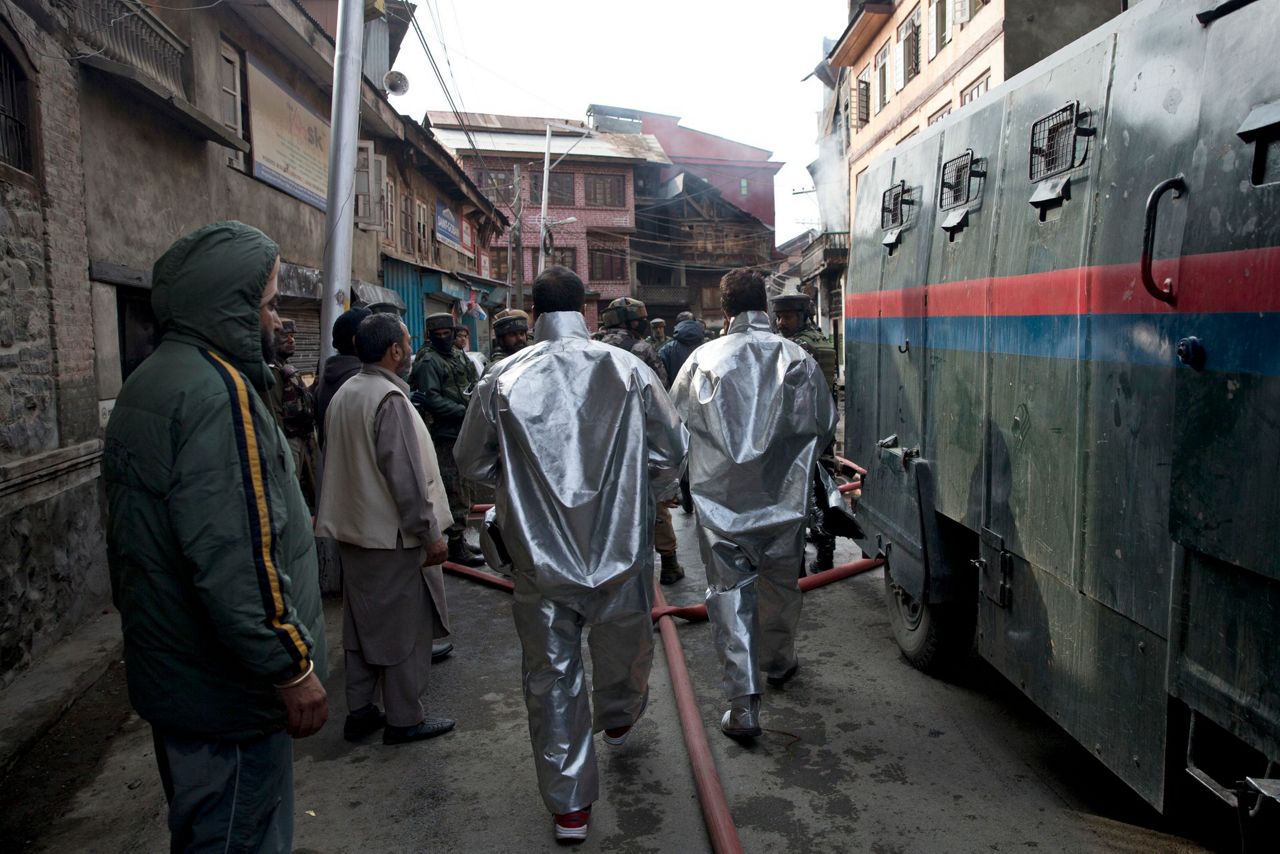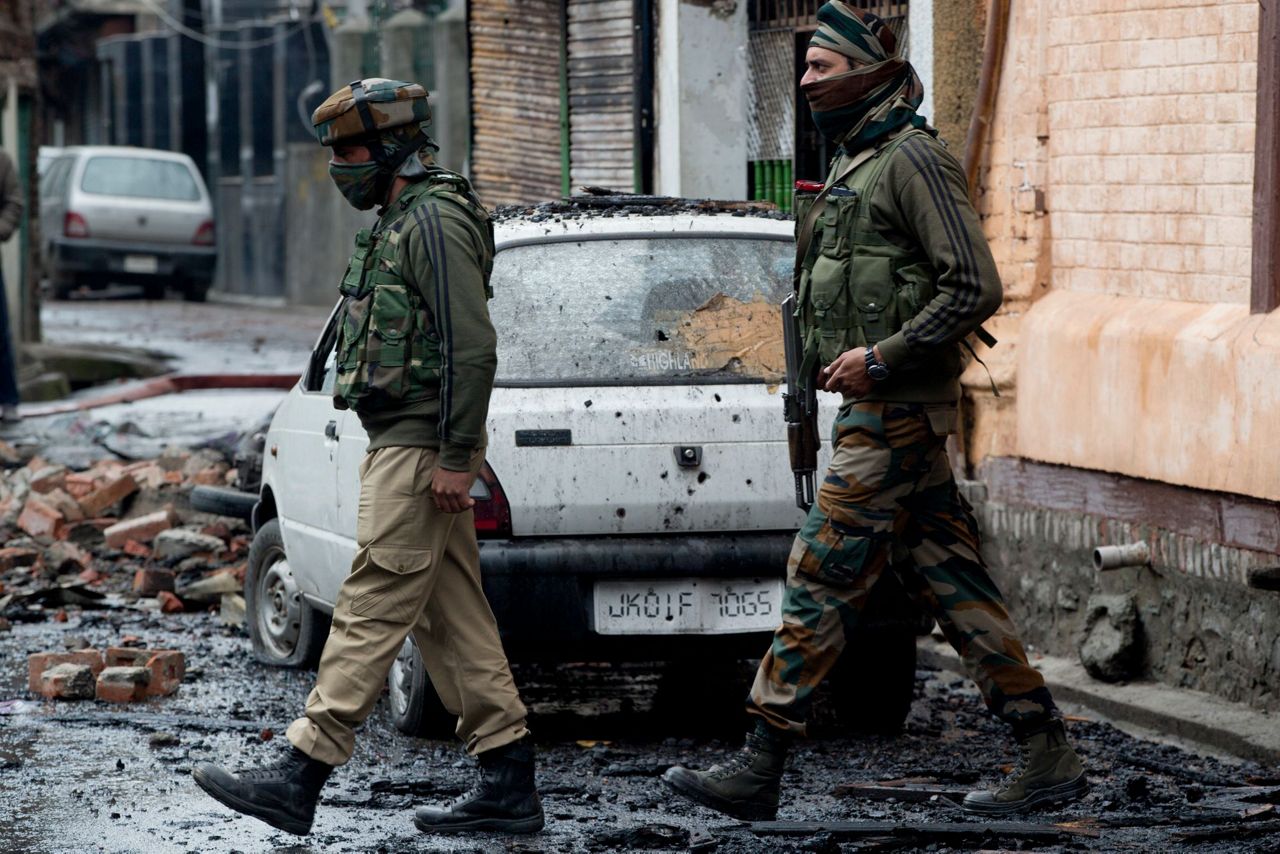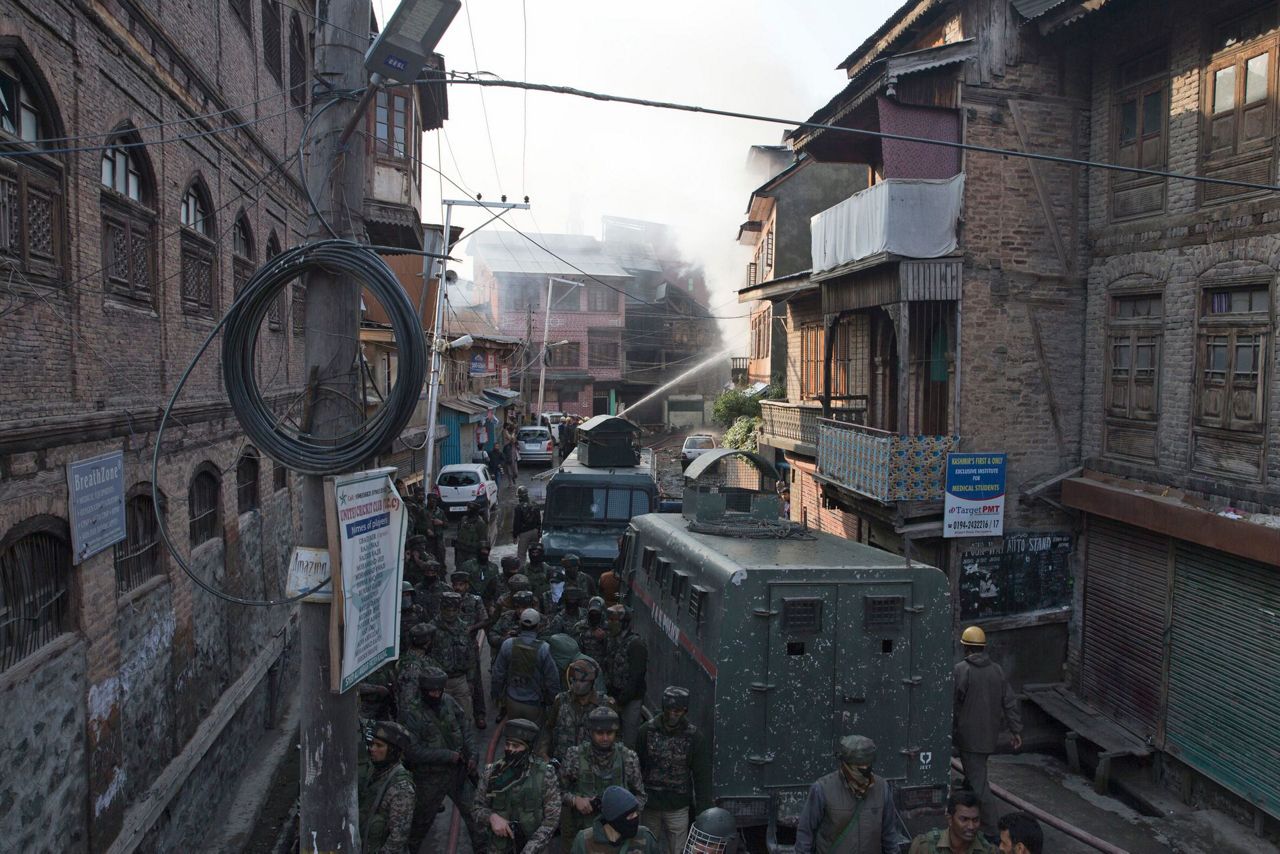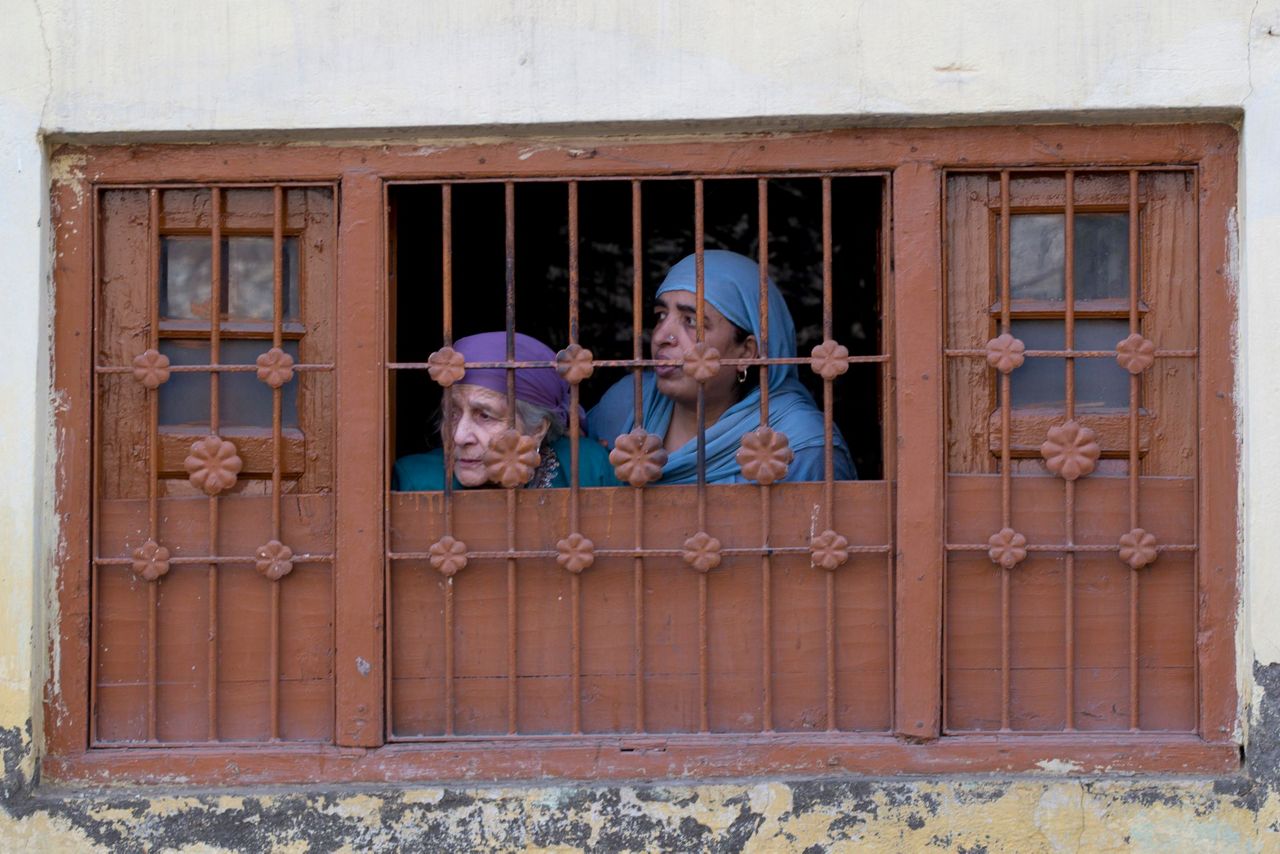SRINAGAR, India (AP) — Anti-India protests and clashes erupted in the main city in disputed Kashmir on Wednesday after a gunbattle between militants and government forces killed at least two rebels, a civilian and a counterinsurgency police official, residents and police said.
At least a dozen journalists covering the fighting were beaten by counterinsurgency policemen well after the fighting ended, media groups and reporters said.
The gunbattle began early Wednesday after troops cordoned off a neighborhood in Srinagar on a tip that some rebels were in a civilian home, police said. The exchange of gunfire lasted about half an hour, police said, leaving two local militants, including a commander, a son of the house owner and a police official dead.
Asif Nabi, another son of the house owner, said the shooting began shortly after Indian troops knocked on their door and took away his brother. Police said the man was killed in the fighting as he tried to escape along with militants. They said he had provided logistic support to the rebels.
The house owner suffered cardiac arrest during the raid and was hospitalized, residents and police said. The slain civilian's mother told reporters that her son was tortured and killed in "cold blood" by government forces.
At least three soldiers were also injured in the fighting. No further information was immediately available.
Residents said they heard loud explosions during the fighting and accused the troops of blasting at least two houses with explosives.
Later Wednesday, thousands in Srinagar participated in the joint funeral of the slain rebels and the civilian while chanting slogans such as "Go India, go back" and "Long live Pakistan." They marched with the bodies to Srinagar's main martyrs' graveyard, where hundreds of Kashmiri militants and civilians killed during nearly three decades of fighting are buried.
As news of the fighting spread, anti-India protests and clashes erupted in several places in downtown Srinagar. Demonstrators chanting slogans demanding an end to Indian rule tried to reach the site of the standoff and threw stones at police and paramilitary soldiers.
Government forces fired tear gas and shotgun pellets to stop the protesters. There were no reports of injuries.
Most shops and businesses closed to protest the killings and authorities deployed more paramilitary soldiers and police in riot gear to patrol streets in the already densely militarized region.
Authorities limited communications, including internet on cellphones, as is routine during such fighting to make organizing anti-India protests difficult. They also ordered schools shut in anticipation of student protests.
Some journalists were injured when police hit them with batons and gun butts, said Asif Qureshi, a senior TV journalist. "The irony is that they beat us in the presence of a senior police officer," Qureshi said. "They pointed guns at us and threatened to fire at us. Later they resorted to aerial firing so close that some of the empty cartridges hit me."
S.P. Pani, a senior police officer, said authorities would investigate the incident.
The Kashmir Press Club and several journalist groups condemned the incident.
"This is not the first time when media persons have been at receiving end of security agencies. Every time media persons are assaulted, the authorities at the helm churn out theories and assure action," the Kashmir Journalists Corps said in a statement. "But the promises of probe and action have always remained a mirage."
Clashes between government troops and residents occurred Tuesday during the last phase of local council elections that had a low turnout in Muslim-dominated areas of the region. Separatists and armed rebel groups had called for a boycott, viewing the polls as an illegitimate exercise under military occupation.
Meanwhile, separatists who challenge India's sovereignty over Kashmir called for a general strike on Thursday to protest the killings. They castigated the Indian government for state repression of the Kashmiri people which they said "is increasing with each passing day."
India and Pakistan each administer part of Kashmir, but both claim it in its entirety.
Most Kashmiris support rebel demands that the territory be united either under Pakistani rule or as an independent country, while also participating in civilian street protests against Indian control. In recent years, more Kashmiris have displayed open solidarity with the rebels and sought to protect them by engaging troops in street clashes during military operations.
Rebels have been fighting Indian control since 1989. India accuses Pakistan of arming and training the rebels, a charge Pakistan denies.
Nearly 70,000 people have been killed in the uprising and the ensuing Indian military crackdown.
Copyright 2018 The Associated Press. All rights reserved. This material may not be published, broadcast, rewritten or redistributed.



